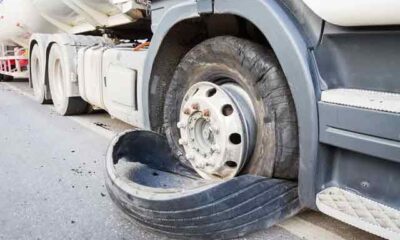While transporting goods such as household items, business items, valuable goods or any other things that are allowed to transport via a logistics provider, there is always a small margin of chance for damage and loss of goods.
In case there is damage or if the good is completely lost during the transportation process, who is responsible for that?
This question is speculated everywhere. But what is the answer? Who bears the cost? Buyer or seller or the logistics provider?
To arrive at an answer for this question, one should understand contractual terms, liabilities and insurance for a good that is being transported.
In this article let’s explore who should bear the cost under what circumstances, and about the governing law that surrounds the transportation process.
Legal Responsibility for Damaged Goods During Transit- As per Indian Law
The contract between the buyer, seller and logistics provider plays the main role in the process. This contract determines the liability for goods that are damaged during transit. These contracts define the ownership transfer, risk mitigation and liability.
Let’s explore the terms in contracts that are being used under the Indian Law. Free On Board (FOB)
Free On Board is a shipment term that defines the point in the transport chain when the buyer or seller becomes liable for the goods being transported. The purchase order between buyer and sellers will set the FOB terms, and determine ownership, risk, and transportation costs.

truck accident at highway
This is a century old concept. FOB comes with two different models. Namely FOB Origin, FOB Destination. By specifying whether goods are shipped FOB Origin or FOB Destination, companies clearly define where and when they bear the costs and risks associated with transportation. This not only determines who should bear the risk, the policy also has implications on insurance. According to law FOB Origin means the buyer assumes all risk once the seller ships the product.
Let’s see the difference between the two types.
FOB Origin: The buyer takes the complete responsibility of the goods once it leaves the sellers place.Which means buyer should bear the cost, loss, and risk associated with the transit.
FOB Destination: The seller is responsible for the shipment till it reaches the buyer point. The seller bears the costs and risks associated with transportation up to that point.
Whether the transaction is domestic or international, FOB conditions influence inventory management, shipping costs, and insurance requirements.
Cost Insurance Freight (FIE)
CIF is an international shipping contract, in this contract the buyer will pay the insurance amount, and the payment for the shipment along with the price for shipment. But this contract only applies to goods shipped via a waterway or ocean.
What is the Difference?
CIF (Cost, Insurance, and Freight) and FOB (Free on Board) are two widely used Incoterm agreements.
Although the definition of both terms can differ across countries and is ultimately determined by each vendor-client contract, historically, FOB transfers liability from seller to buyer when the shipment reaches the port or other facility designated as the point of origin. With a CIF agreement, the seller pays costs and assumes liability until the goods reach the port of destination chosen by the buyer.
Transporter’s Liability and Legal Precedents
The logistics and transport team plays a vital role in the risk mitigation and to determine who should bear the cost and expenses. There is a term “Goods at Owner’s Risk” or “At Owner’s Risk” which means the transporter is liable for the damages occurring during the transit, unless negligence or mishandling is proven.

goods loading destination
Rungta Brothers has transported Kota Stones to Bharuch in Gujarat, through Vijay Goods Transport Company at Kota. The transporter collected goods but goods were not delivered at destination. After several arguments, Rungta Brothers filed a complaint against the transporter. National Consumer Disputes Redressal Commission In its order reported at 2003 CTJ 480 (CP), said that the that transporters cannot evade liability using the term “at owner’s risk.”
But only with the clause the logistics provider cannot escape the responsibility because courts have ruled that only with the clause transporter cannot get absolute exemption from responsibility. If the guilty is proven, the transporter will be held accountable.
Conclusion
There are different clauses and contracts involved in determining who is liable for the damage. Reading each and every contract terms mentioned before agreeing for the shipment will help to mitigate these kinds of issues with more clarity.



























